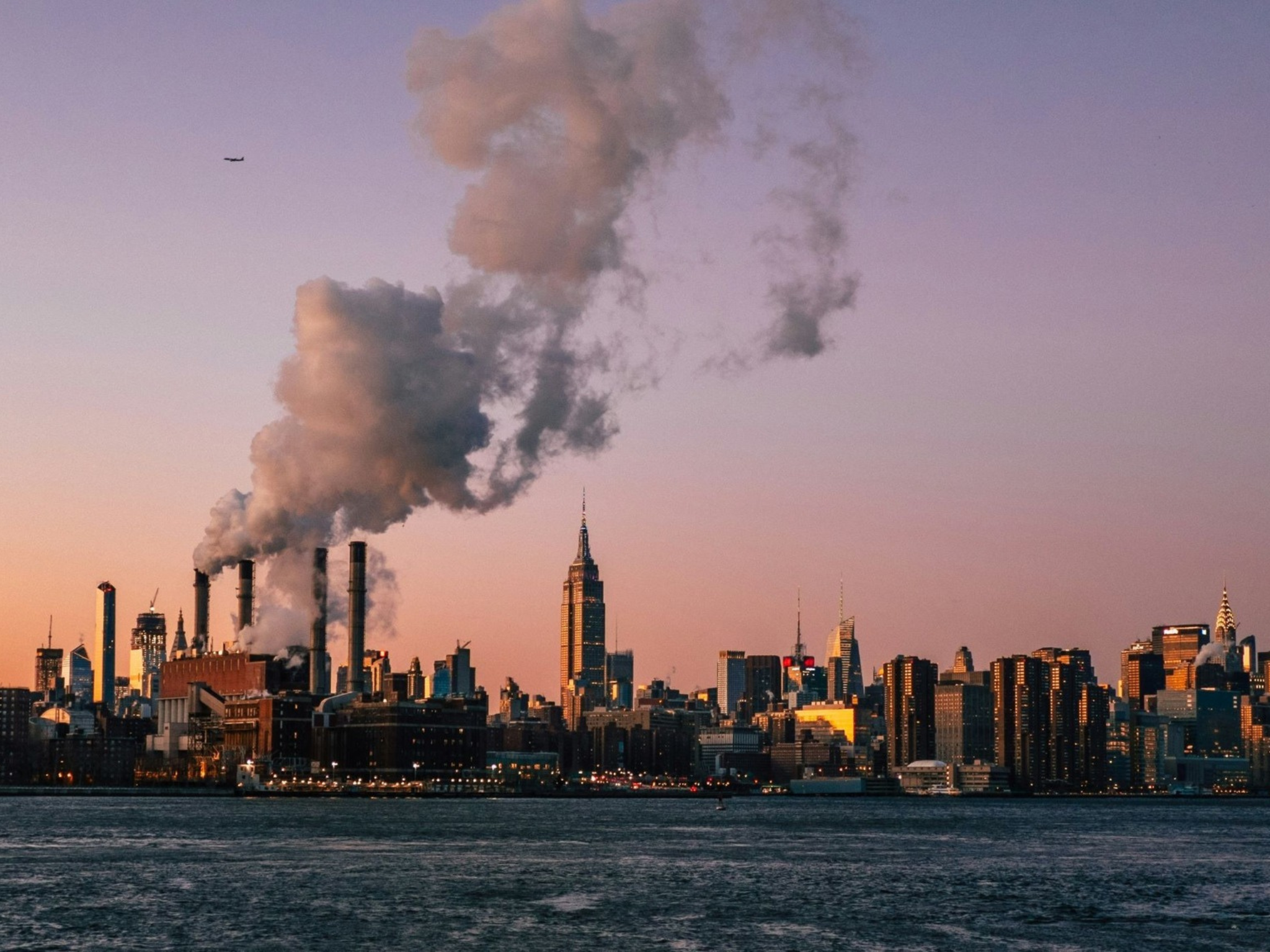New York Signs Law to Fine Big Oil Polluters $75B Via Climate Change Superfund
5 Mins Read
New York Governor Kathy Hochul has signed the Climate Change Superfund Act to make fossil fuel polluters pay $3B a year for their environmental impacts.
With Donald Trump, who loves fossil fuels and denies climate change, taking presidential office again in three weeks, the state where he made his name is taking on Big Oil for its impact on the planet.
New York will penalise oil and gas producers for their contributions to greenhouse gas emissions between 2000 and 2018 to shift the cost of climate adaptation “from everyday New Yorkers to the fossil fuel companies most responsible for the pollution”.
Known as the Climate Change Superfund Act, the law was signed by Governor Kathy Hochul this week, and will raise $75B over a 25-year period from fossil fuel producers. For context, three of the largest domestic oil companies – ExxonMobil, Chevron, and Shell – raked in $85.6B in combined profits in 2023 alone.
It applies to fossil fuel companies that the state determines are responsible for over a billion tonnes of global greenhouse gas emissions.
Although New York is likely to face legal challenges against the act, it has also set up a Climate Change Adaptation Cost Recovery Program to ensure that the money paid by these polluters goes towards adapting the state’s infrastructure to the impacts of the climate crisis.
Climate action among New York’s ‘greatest challenges’

The legislation is modelled on the Superfund law from 1980, which requires that companies pay for the cleanup of toxic waste from oil and chemical spills. This one focuses on the climate impact of fossil fuel production because it’s the biggest contributor to global greenhouse gas emissions and has an outsized influence on the increase of extreme weather events.
The US already witnessed the highest number of billion-dollar climate disasters in a year in 2023 (28), and as of November 2024, 24 such events have occurred since. 2024 is likely to go down as the hottest year on record so far, and heatwaves like those in Arizona have shown how deadly these events can be.
Closer to home, the skyline of New York City sported an unpleasant orange haze as a result of smoke from Canadian wildfires in 2023, and the Big Apple experienced flash floods months later. And in late 2024, a lake-effect snowstorm in several areas led Hochul to declare a state of emergency.
It’s why the state is taking a hardline stance on climate change. The Climate Change Superfund Act outlines the importance of adaptation measures against irreversible impacts, particularly for young people, who are set to face the worst consequences of the crisis over their lifetimes. It is “one of the state’s greatest challenges over the next three decades” – one which requires shared commitments, massive infrastructure investments, and new revenue sources.
“New York has fired a shot that will be heard round the world: the companies most responsible for the climate crisis will be held accountable,” said Senator Liz Krueger, a Democrat who co-sponsored the bill. She noted that major oil companies have made over $1T in profits since 2021, and have known since at least the 1970s that fossil fuel extraction and burning cause climate change.
“The planet’s largest climate polluters bear a unique responsibility for creating the climate crisis, and they must pay their fair share to help regular New Yorkers deal with the consequences,” she added.
In 2023, New Yorkers were hit with climate damages worth $2.2B, but Joseph Stiglitz, a Nobel Prize-winning economist, has analysed the act’s structure and reassured taxpayers that the costs can’t be passed on to them.
A third of the funds set aside for disadvantaged communities

Over 80% of the increase in greenhouse gas levels since the Industrial Revolution has occurred since 1950, but there has been a marked increase since 2000, prompting New York’s legislators to choose the 2000-2018 period for the scope of the Superfund law.
“By 2000 the science of climate change was well established, and no reasonable corporate actor could have failed to anticipate regulatory action to address its impacts,” the act reads.
Krueger explained that fixing and adapting to extreme weather will cost the state more than $500B over the next 25 years. “That’s over $65,000 per household, and that’s on top of the disruption, injury, and death that the climate crisis is causing in every corner of our state,” she said.
The funds raised will help restore and protect coastal wetlands, develop flood mitigation systems, upgrade roads, bridges and subways, elevate and retrofit existing strictures, and improve stormwater drainage systems. The Climate Change Adaptation Cost Recovery Program will ramp up investment in natural disaster recovery and health efforts to treat illnesses or injuries related to climate events.
“Establishing the Climate Superfund is the latest example of my administration taking action to hold polluters responsible for the damage done to our environment and requiring major investments in infrastructure and other projects critical to protecting our communities and economy,” said Hochul.
At least 35% of the money will be allocated to infrastructure projects that benefit disadvantaged communities, i.e., low- and moderate-income households that bear the burdens of negative public health and pollution effects of climate change.
The law is expected to be met with legal challenges from the fossil fuel sector, whose representatives asked Hochul to veto the legislation last month. They will likely argue that a move to force polluters to pay for climate change would be up to Congress, not the states. In a Republican-led government helmed by a “drill, baby, drill” president, those arguments may hold up.
New York isn’t the first state to introduce such a law – Vermont has also introduced a Superfund law for polluters. Fellow Democrat-led states like Maryland, Massachusetts, New Jersey and California have considered a similar move, while Minnesota and Oregon are developing their own versions based on New York’s model.



